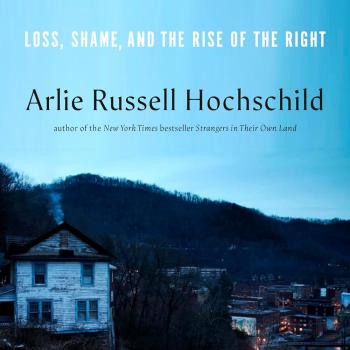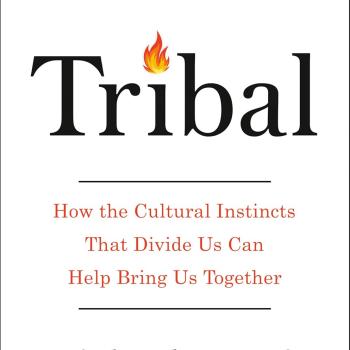A few people have asked, “What do you think about The Gospel Coalition’s review of your book?” My response didn’t surprise those who posed the question. I’ve said, “It’s probably the most positive review I could ever expect from The Gospel Coalition.”

That is not at all a back-handed “thank you.” I’m sincerely grateful for such a thoughtful and generous review. However, I’m also aware that every church, organization, etc. has certain things they look for when reading books. Any book that covers such a broad span of Romans will, for example, address justification. That topic has long been a focus point for TGC writers.
(For full disclosure, I am the Mission and Culture book reviews editor for The Gospel Coalition’s (TGC) journal Themelios. I didn’t even know they reviewed the book until a day after it was published online. So, there was no insider influence.)
A Lesson in Critiquing a Book
The reviewers, Jonathan Worthington and Elliot Clark, show respect and appreciation while demonstrating how to disagree well. They open with several kind words about the Reading Romans, including specific insights they gained from it. The next section identifies a particular concern or limitation of the book as they see it.
Before engaging with their criticism, I want to highlight what impressed me most about their review. After stating their reservations, they make this comment:
“Some defenders of Wu or his perspective may now be tempted to dismiss our earlier praise for his book as shallow and insincere. Some committed to a traditional understanding of justification may now be tempted to dismiss Wu’s entire project. Both temptations should be resisted. Wu has given us many genuine insights, and they’re exactly the things that those in the Reformed evangelical world need to see—reading Wu with discerning eyes, of course.”
I rarely see reviewers go out of their way like this to ensure that readers would maintain a balanced perspective. In fact, they later add this qualification,
“We also believe that careful readers who don’t blindly follow Wu’s view of justification can greatly benefit from his primary objective. His theology of justification is actually peripheral and dispensable, not central and inherent, to his main thesis.”
In recent years, it has become vogue to judge books as nearly “all bad” or “all good.” We’ve lost our ability to disagree and the appreciation for nuance. Sadly, this has become too characteristic of conservative evangelicals. Worthington and Clark offer a refreshing example of a better way forward.
Responding to “Significant Concerns”
So, what do they not like about Reading Romans with Eastern Eyes and what is my response? First, I state their concern. They write,
“Inasmuch as we appreciate Wu’s contribution to the church’s understanding of Romans, we do have some significant concerns. In some cases, we believe Wu has blurred theological lines specifically related to the doctrine of justification. While his primary and stated agenda is to highlight shame-honor and collectivist aspects of Romans, his secondary goal appears to be influenced by his commitment to the “New Perspective” reading of Paul.
Wu has sought to correct an overemphasis on the individual. But we believe he’s done so with an overemphasis on the collective. And he’s done so in a way that, at times, confuses a crucial aspect of the gospel itself—justification.”
I appreciate their acknowledgement that Reading Romans primary aims to highlight shame-honor thus collectivist aspects of Romans. Therefore, one should not expect an extended exposition on justification and related themes. Of course, we can’t entirely separate justification from honor-shame. After all, Paul explicitly links them in texts like Romans 10:10-11, which says
For with the heart one believes and is justified, and with the mouth one confesses and is saved. For the Scripture says, “Everyone who believes in him will not be put to shame.”
I was somewhat disappointed but not surprised by the reference to my “commitment to the ‘New Perspective’ reading of Paul.” That blanket description obscures more than it reveals.
- There is no such that as a single “New Perspective” on Paul.
- Even proponents of the traditional protestant perspective have expressed appreciation for many insights that comes from the so-called New Perspective on Paul (NPP). The reviewers use the term as if everything coming from the NPP were errant.
If I were to liken my view of Paul to other scholars, the people with whom I’m probably closest would be Michael Bird and Preston Sprinkle (based on what I’ve read from him on the topic). I’d be on the more traditional side of N. T. Wright, though our difference might be a matter of emphasis.
Individual vs. Collective Identity?
Finally, Worthington and Clark add,
“As a result, we believe Wu conflates who is justified with how they are justified. At times the scope of the gospel eclipses the content and means of the gospel (90). Wu wants to emphasize (not without some warrant) the community identity that comes with justification. Quoting N. T. Wright, he repeatedly affirms, “Justification is all about being declared a member of God’s people” (106). But this communal focus seems to blind Wu to Paul’s ability to talk about justification in personal and individual terms as well, specifically with reference to what it actually is rather than to whom it’s applied, and particularly in the texts of Romans 3–4.
Wu has sought to correct an overemphasis on the individual. This is needed. But we believe he’s done so with an overemphasis on the collective. And he’s done so in a way that, at times, confuses a crucial aspect of the gospel itself—justification.”
I suspect this might be one of those “in the eye of the beholder” objections. The book intends to be a corrective. By nature, one would not expect correctives to be entirely balanced on all issues (while remaining readable).
Where we can’t agree on what constitutes a proper emphasis, I would say this: With a group (i.e., collective identity), we get the individual. But with a focus on the individual, we tend to lose the group. While an oversimplification, I think the past few hundred years of overemphasizing the individual bears out my point.












